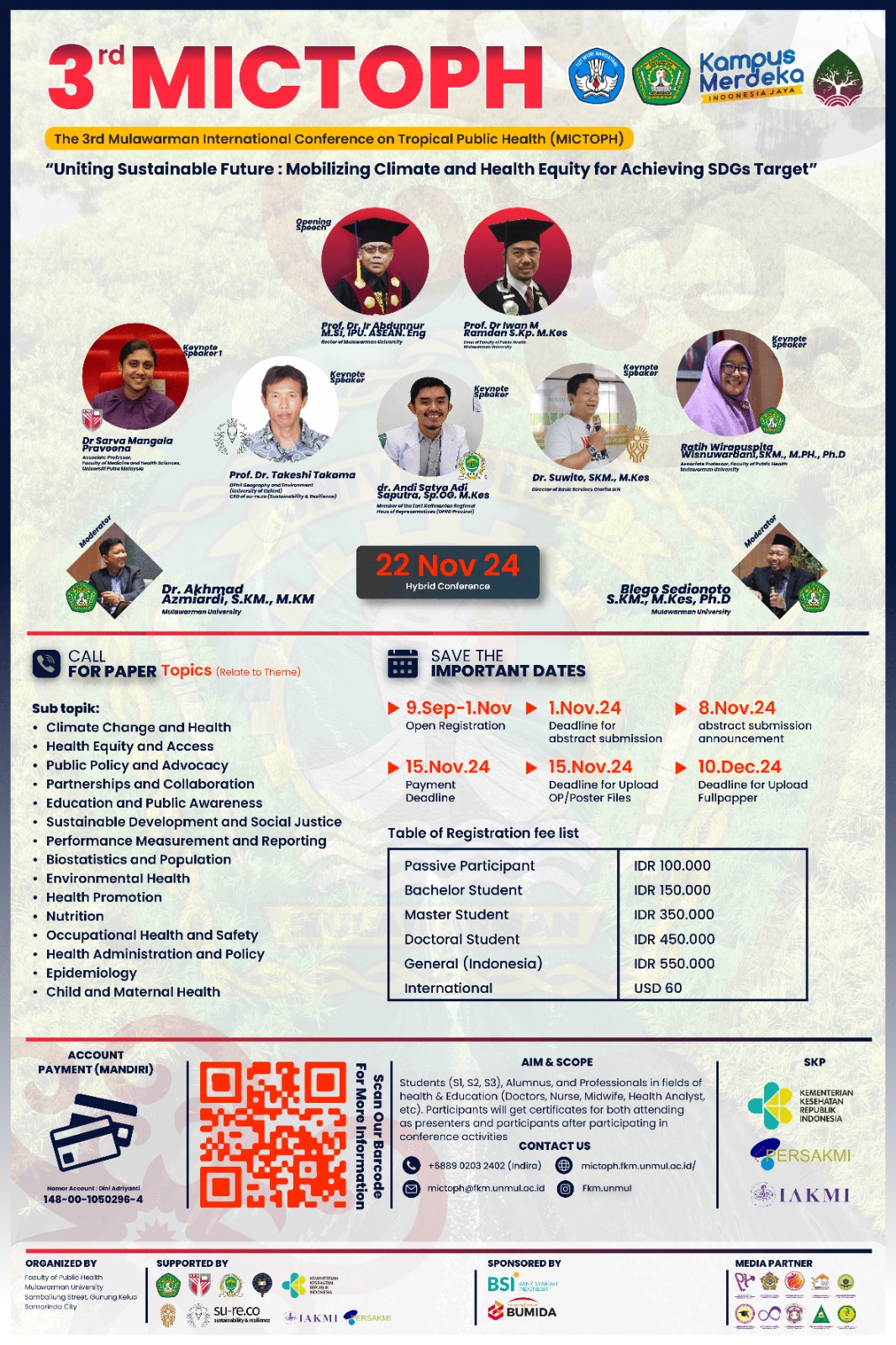Dapur Sehat Atas Stunting
Keywords:
Stuting, Nutrition Knowledge, DESASAbstract
Background : One of the health problems that has become a global issue is stunting. where Stunting is a form of malnutrition that creates a global public health problem and is an important supporting factor in achieving the Human Development Index in a country nation. Stunting (dwarfism) is a condition where a toddler has less length or height compared to age. Stunting is a disorder or failure of linear growth that occurs in children with signs of pathological disorders and chronic conditions. This represents delayed growth due to long-term malnutrition associated with increased morality and mortality, impaired growth, impaired development and cognitive function. Stunting increases the risk of chronic disease in adulthood. Stunting is currently still being faced by developing countries. Approximately 65% of deaths among children under five are due to malnutrition and malnutrition, which represents one third of the disease burden among children and mothers. Indonesia is one of the developing countries that has a high prevalence of stunting, accounting for the top five cases of stunting, out of 88 countries in the world. The 2020 Global Nutrition Report shows an increase in the number of stunted children under five from A149 million to 149.2 million in 2018. Based on global data, the prevalence of stunting in rural areas is greater than in urban areas with a prevalence of 35.6% and 25% respectively. 6%. Based on gender, more boys experience stunting, namely 33.5% compared to girls at 31.2% Objective : This research aims to have an influence on reducing the stunting rate in Karang Jinawi Village by holding DESAS (Healthy Kitchens to Overcome Stunting) activities to increase the knowledge and skills of mothers in making additional food (PMT) pudding from Moringa leaves. Research Methods/ Implementation Methods : Activities are carried out in stages starting from analyzing the situation of the intervention area, designing a Plan of Action (POA), surveying the root causes of problems and solutions to problems in the intervention area, carrying out Focus Discussion Groups (FGD) using the USG (Urgency, Seriousness, and Growth) method as well as interventions and evaluation. Determining the problem in Sepaku Subdistrict, Karang Jinawi Village begins by reviewing secondary and primary data. Secondary data is in the form of Karang Jinawi Village and Subdistrict Profile data for 2024. Results : DESAS (Healthy Kitchens Overcome Stunting) is an activity carried out jointly as an effort to overcome the problem of malnutrition among pregnant women who have the potential to give birth to stunted children in Karang Jinawi Village. Through the delivery Aof material and practice of making additional food (PMT) pudding from Moringa leaves. The DESAS (Healthy Kitchen to Overcome Stunting) program is implemented at the Karang Village Hall Jinawi on Thursday, July 18 2024, 09.30 to 11.30 WITA. Achieving an increase in understanding of the Karang Jinawi community, especially mothers who attended the presentation of the DESAS Conclusion/Lesson Learned : In Karang Jinawi Village, it shows that meeting nutritional needs during pregnancy is very important for maternal health and fetal development. The nutritional needs of pregnant women increase significantly compared to non-pregnant women, because mothers not only have to meet their own nutritional needs, but also to support their growth and development. fetal development. Lack of nutritional intake can cause various health problems, both for mothers and babies, such as low birth weight, growth restrictions, and the risk of congenital defects. The DESAS program plays an important role in increasing nutritional knowledge among pregnant women through education and direct practice. With training on making additional nutritious foods, such as pudding from Moringa leaves, this program not only provides theory but also practical skills that can be applied in everyday life.





